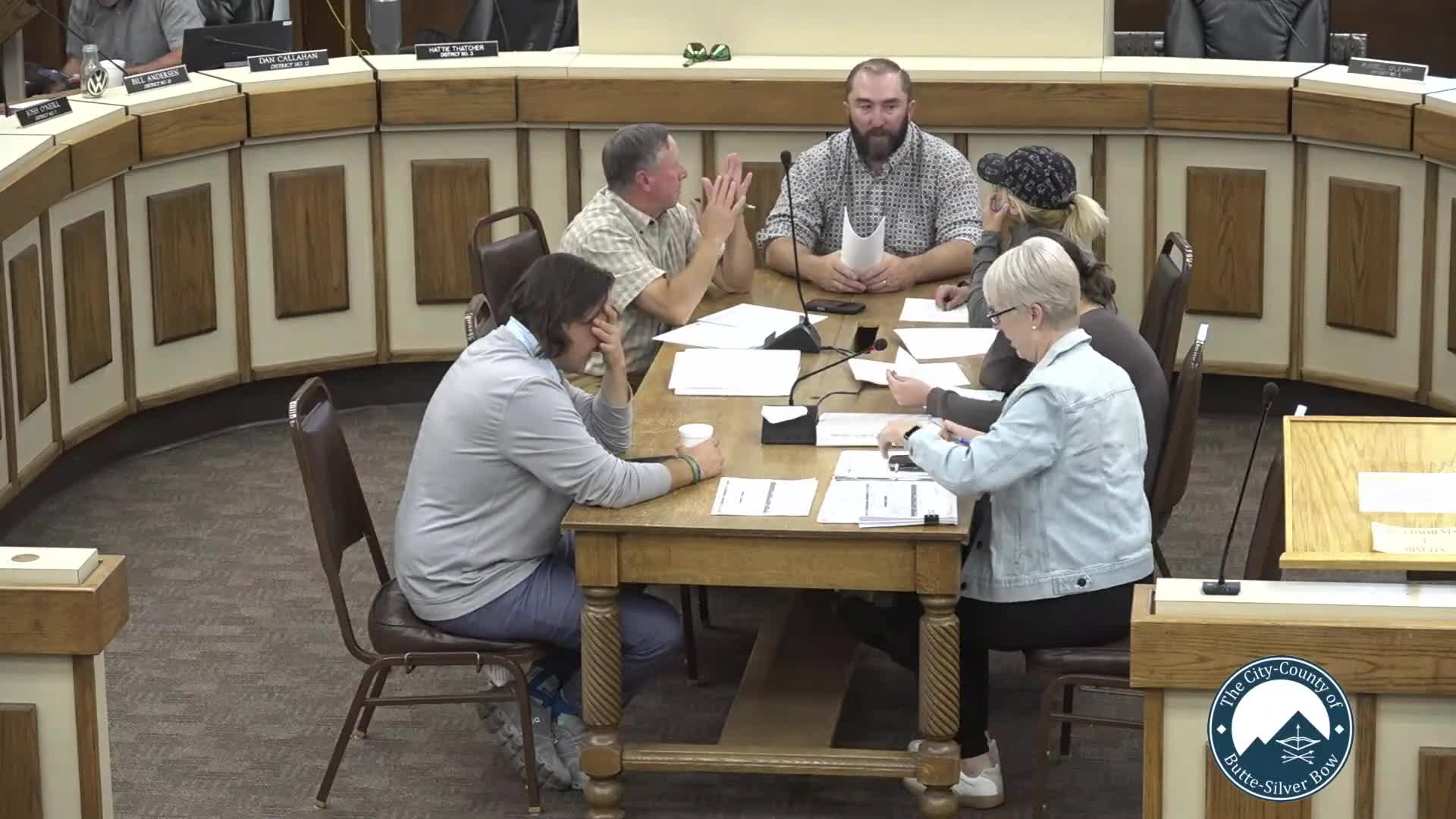Butte-Silver Bow judiciary committee holds draft marijuana ordinance for further review
Get AI-powered insights, summaries, and transcripts
Subscribe
Summary
The county's judiciary committee voted to hold a draft ordinance that would regulate medical and recreational marijuana sales, including distance restrictions, a cap on dispensaries, signage limits and inspection authority, while staff collect redlines and return it for additional review.
At its Oct. 8, 2025, judiciary committee meeting, the Butte-Silver Bow County judiciary committee voted to hold in abeyance a draft county ordinance that would regulate the sale and distribution of medical and recreational marijuana within the county.
The ordinance draft, presented by County Attorney Matt Enruth, would set local rules on zoning, distance restrictions, signage, caps on the number of dispensaries, inspection and enforcement authority, and penalties. The committee voted to attach the draft to a future agenda, collect commissioner redlines and return it for further consideration.
County Attorney Matt Enruth said he provided “an actual draft of what the ordinance is gonna look like” and pointed commissioners to several highlighted items. On location rules, he said the draft currently sets a 500-foot distance restriction measured as a radius and added language that entrances “do not to be located on the same street and may include other outbuildings.”
Enruth said the draft would tighten local rules on signage and advertising after state rules became “a lot looser.” He told commissioners the draft sets a cap of 10 dispensaries in the county and notes that existing dispensaries would be grandfathered but “if they relocate to a new address, change ownership, expand beyond the footprint of their current licensed premises, then the shall be treated as a new applicant.”
The draft includes a prohibition on any person or business holding more than one dispensary license within Butte-Silver Bow and staff said that provision will be updated to cover cultivation facilities as well. Enruth said the ordinance would mirror many state requirements, including age limits and prohibitions on consumption in vehicles, and would provide local authority to inspect, audit and investigate licensed premises; he warned that “any refusal to allow us to do so would constitute grounds for a license suspension or revocation.”
On penalties, Enruth described options for civil penalties tied to ongoing violations and asked commissioners to consider whether fines should be flat, daily, or escalating. “What I'd like the commissioners to think about is if you would like to see just a flat rate fine that occurs on a daily basis while the violation is continuing or a step up,” he said.
Commissioners discussed whether to tie the cap on dispensaries to population. Enruth said the office reviewed approaches used for liquor licenses and a 1-per-10,000-person formula used by the city of Ronan. “We thought 1 license per 10,000 people. Well, that puts it at 4 in this town,” Enruth said, adding the county could adopt a formula or include a reexamination clause based on census updates.
Enruth also clarified the enforcement roles of state officials: the Department of Public Health and Human Services maintains administrative rules for marijuana licensing, and the attorney general’s office can enforce state licensing rules if requested. “They can enforce the law if we ask them to,” Enruth said, while noting the county can put a local regulatory ordinance in place and enforce it without asking the attorney general.
After discussion, Judicial Committee Chair Michelle Shea said she would entertain a motion to hold the communication and attach the draft for continued review. There was a motion and second to hold communication 202-5310 in abeyance; the motion passed.
The committee directed staff to collect commissioner comments and provide a redlined draft for public review before returning the ordinance to the committee for further action.
